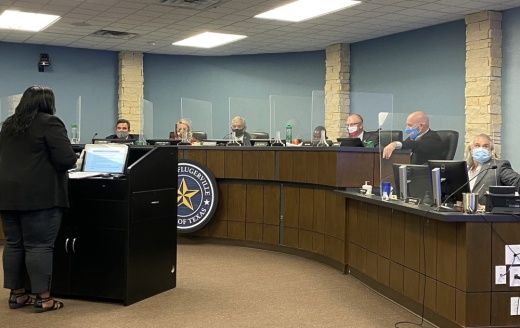During an Aug. 24 meeting, Pflugerville City Council received a debriefing on the latest news of the federal funding—$3.1 million of which was sent in June and the other $3.1 million that will be sent June 2022.
Information from the city states the funding may not be used to offset a reduction of tax revenue, nor may it be deposited into a pension fund, used as a match for federal programs or for used for road improvements.
While Pflugerville officials and staff are still waiting on more specific guidance for allowable uses, city documents state the funding must be obligated in a contract by Dec. 31, 2024, and completely expended by Dec. 31 2026.
Nicole Little, Pflugerville's business process analyst, said some city projects that might be allowable under ARPA's guidelines include purchase of technology used to support remote work.
Citing a recent Harris County initiative to give its residents $100 to get vaccinated for COVID-19, Council Member Omar Pena asked if the some of the funding coming to Pflugerville via ARPA might be used toward a similar goal, but Council Member Ceasar Ruiz said he did not like the idea of compensating people for actions they should be taking anyway for the good of their community.
During discussion, Council Member David Rogers made a case for investing at least some of the ARPA money on the city's water programs, and Council Member Doug Weiss mentioned funding for local broadband projects.
Small businesses also occupied a healthy portion of the conversation.
"My proposal is if you take $1 million and allocate that for small businesses, hey, that's a lot of money for businesses in need," Ruiz said, invoking several local businesses that applied for but did not receive assistance through last year's Coronavirus Relief Fund allocation to the city of $3.5 million.
During the presentation, staff told officials they would be receiving a report on how local businesses that received aid via the CRF have fared so far.
"This pandemic has shown that the backbone of the American economy is small businesses, period," City Council Member Rudy Metayer said. "It does sound like we have more flexibility this time around [to look at how to assist local businesses]."
Ultimately, suggestions from the dais were not official and added to a cache of ideas for how to proceed with ARPA funding.
With half of the ARPA money now available, Little said she would come back to council next month with an actionable list for how to spend it.





